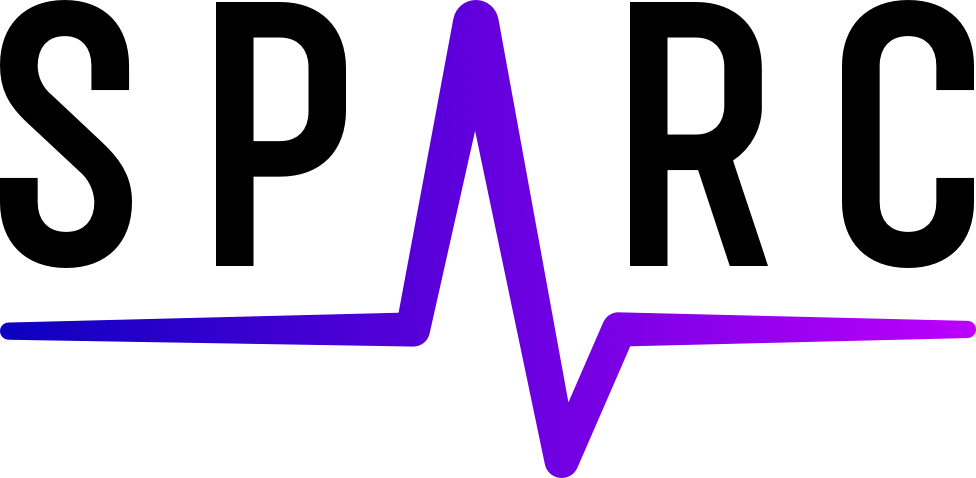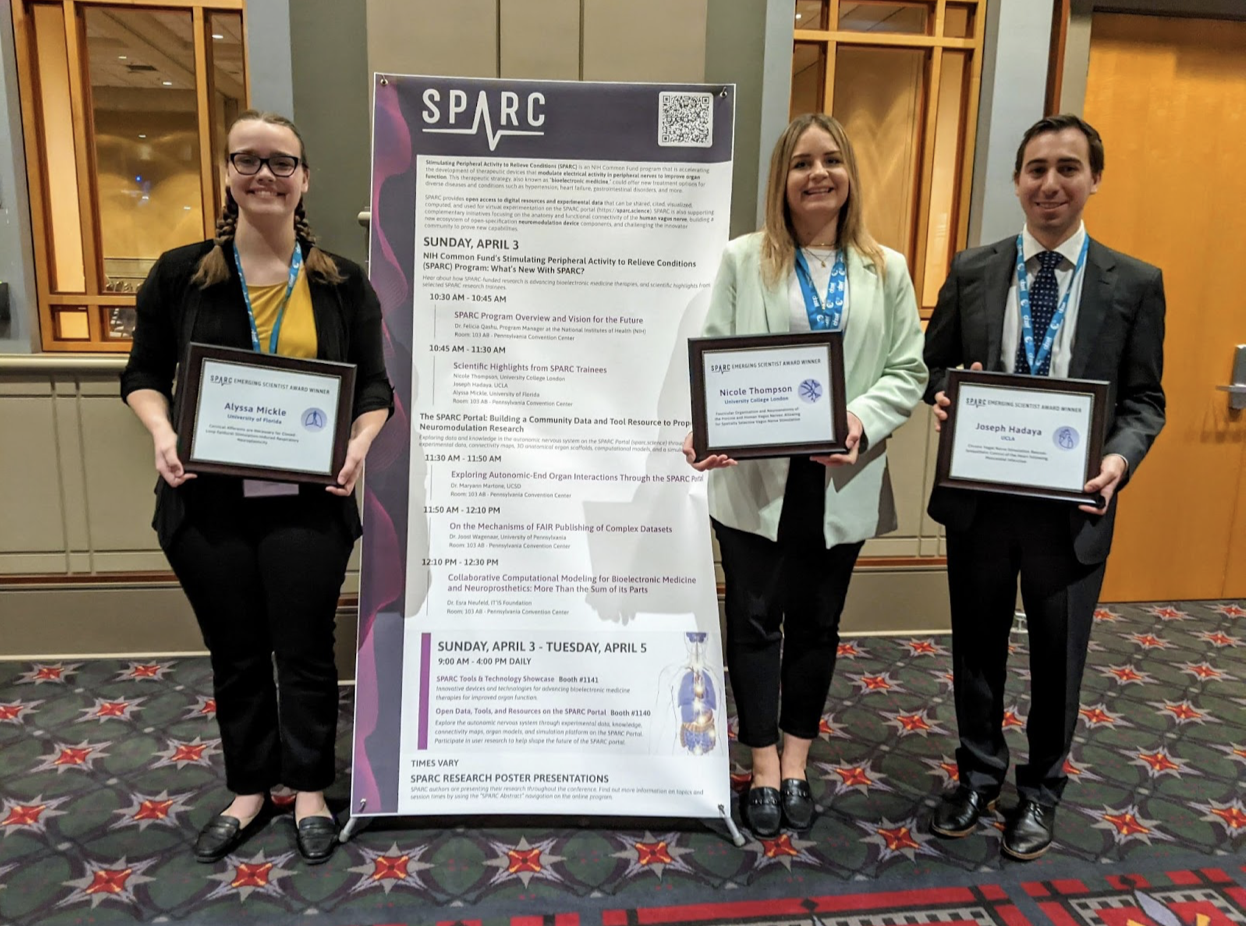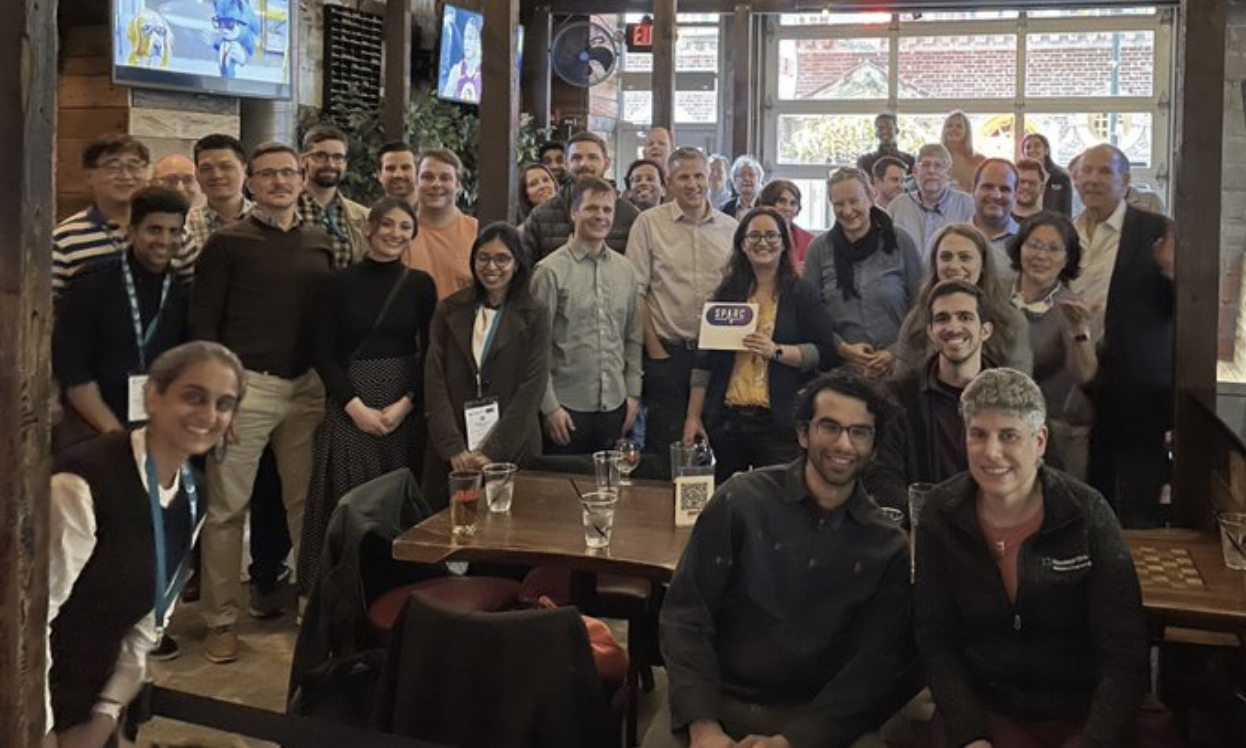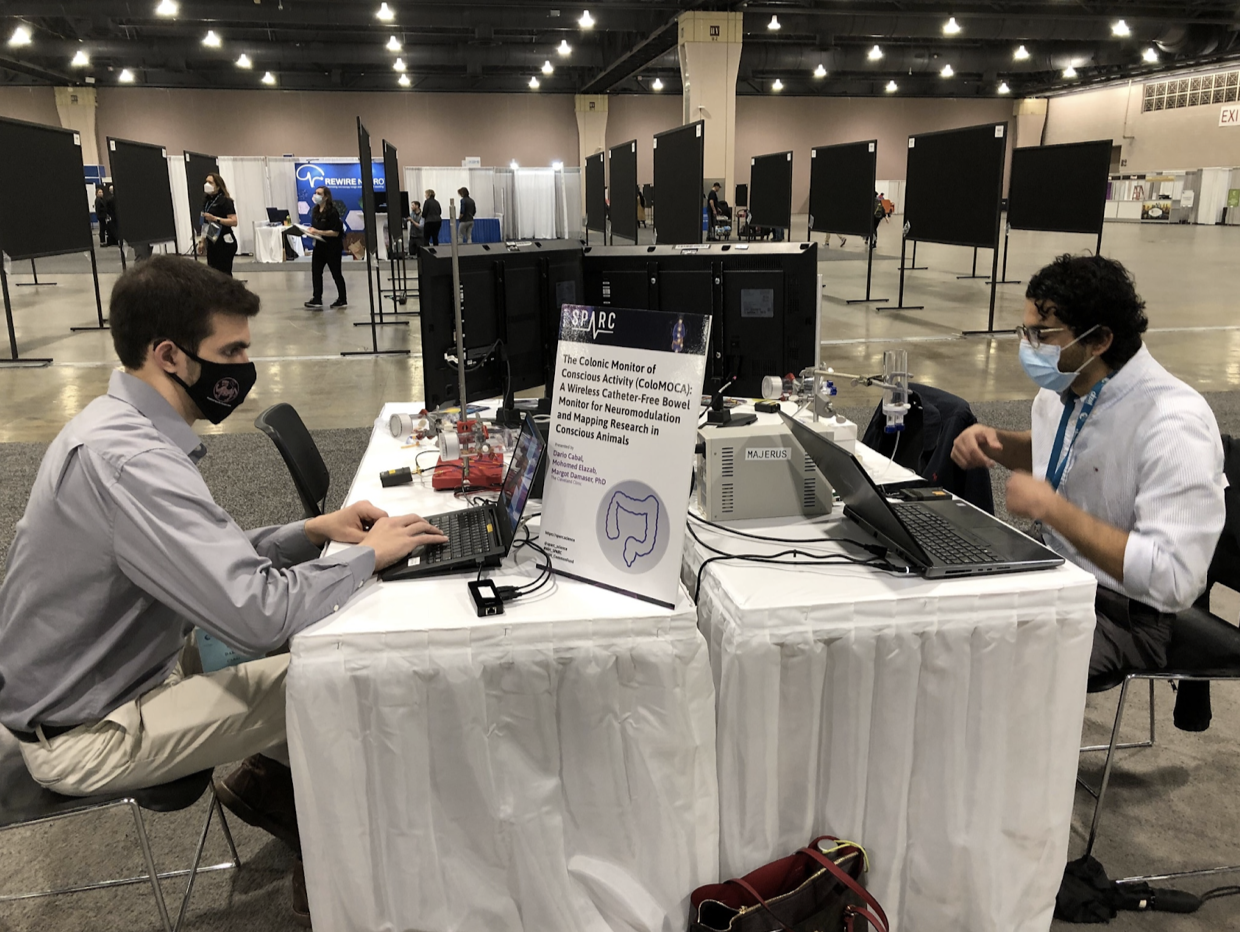SPARC Plug Spring 2022
Originally published 2022/03/10

Click the above link, re-select newsletter issue from sidebar, then select desired language from above.
News from SPARC
Events
The Federation of American Societies for Experimental Biology (FASEB) and the National Institutes of Health (NIH) have created a lucrative DataWorks! Challenge. This competition seeks innovative approaches to data sharing and reuse, with prizes totaling $500,000. Phase 1 registration closes June 28, so look into this exciting opportunity soon! Find out more about this and other opportunities on the SPARC portal’s News and Events page.
The SPARC Data and Resource Center (DRC), with funding from the NIH, is hosting a three-day cloud-based codeathon in August. Watch for announcements on the SPARC Twitter feed to join a diverse team working on exciting projects using SPARC data and/or tools and resources in novel ways. These include enhancing, demonstrating, and measuring the findability, accessibility, interoperability, and reuse (FAIRness) of digital assets. Cash prizes will be awarded.
Funding and Research Opportunities
The Artificial Intelligence/Machine Learning Consortium to Advance Health Equity and Researcher Diversity (AIM-AHEAD) program is accepting applications for its first Research Fellows Program. This fellowship engages early career researchers from underrepresented populations to participate in biomedical research involving the use of AI/ML methodologies on Electronic Health Record Data. Applications are due by 11:59 p.m. ET on Sunday, May 22. Learn More
The NIH Office of Data Science Strategy (ODSS) Data and Technology Advancement (DATA) National Service Scholar Program seeks experienced data and computer scientists and engineers to tackle challenging biomedical data problems with the potential for substantial public health impact. Nine scholars will have the opportunity to make a mark on the future of biomedical research and our nation’s health through this one- or two-year selective position. Applications for the 2022 cohort for DATA Scholars are due by 11:59 p.m. ET on May 27. Learn More
The NIH intends to support a Rapid Acceleration of Diagnostics (RADx®) Tribal Data Repository (RADx TDR) in response to the COVID-19 pandemic. This opportunity provides an expedited funding mechanism to accelerate innovation in the development, commercialization, and implementation of technologies for COVID-19 testing. The RADx TDR will provide responsible data sharing and access to researchers who are generating or interested in working with RADx American Indian and Alaska Native (AI/AN) research data. Applications are due by 5 p.m. local time of applicant organization on May 31. Learn More
The National Human Genome Research Institute (NHGRI) plans to create an Educational Hub for Enhancing Diversity in Computational Genomics and Data Science, referred to as “the Hub.” The Hub will support educational activities about computational genomics, data science, and cloud computing among students and faculty at institutions serving currently underrepresented groups, including but not limited to Historically Black Colleges and Universities, Hispanic-Serving Institutions, Tribal Colleges and Universities, women’s colleges, and institutions serving students with disabilities. Applications are due on July 27 by 5 p.m. local time of applicant organization. Learn More
The National Institute of Neurological Disorders and Stroke (NINDS), in partnership with four other NIH Institutes, invites applications to develop and implement a short course for a broad audience. The course will focus on steps required for successful neural medical device development, translation, and commercialization; common technical and strategic challenges; and best practices and resources for each stage in the process. Questions can be directed to Dr. Brooks Gross. Applications are due on July 29 by 5 p.m. local time of applicant organization. Learn More
Resources and Webinars
The updated Common Fund Data Ecosystem (CFDE) Portal went live on May 3, and contains data from 11 different Common Fund programs, including SPARC. Users can create and export personal collections and search for new types of data including time series, proteins, and compounds. Access the CFDE website to explore training, tools, and other resources.
In the latest SPARC Plug Fireside Chat video, SPARC investigator Dr. Tim Bruns and biomedical engineer Dr. Paul Yoo discuss using computational modeling to help design new neuromodulation approaches to improve bladder function. Learn how SPARC Portal resources can help advance neuromodulation researc. Watch the Fireside Chat.
A new o²S²PARC User Interface for Online Data Analysis and Modeling webinar presents the new o²S²PARC user interface and gives a general introduction to the platform. o²S²PARC is an open, online computational platform aiming to make modeling projects more Findable, Accessible, Interoperable, and Sustainable (FAIR). Explore how o²S²PARC can help data scientists, computational modelers, or anyone dabbling in code. Watch the Webinar.
Conferences and Calls for Papers
American Physiology Summit 2023 Session Proposals Due June 3
The American Physiological Society will hold the American Physiology Summit April 20-23, 2023, at the Long Beach, California Convention and Entertainment Center. Designed from the ground up, the highly innovative meeting will include two general sessions, 80 foundational science sessions, eight game-changer sessions with top scientists, and the new PhysioHub space for socializing and networking. Proposals for foundational sessions are due soon on June 3. Are you a SPARC investigator? Consider organizing a SPARC research-related session in collaboration with your SPARC colleagues. Don’t forget to email SPARC if your proposal is accepted so we can help promote these important sessions.
Society for Neuroscience Meeting Abstracts Due June 15
Keep a watch on the Society for Neuroscience’s meeting website to learn more about their upcoming conference in San Diego Nov. 12-16 – it’s definitely on SPARC’s radar! Abstract submission is open June 1-15. Click here for other important SfN conference dates and deadlines.
ISAN 2022 Early Registration Closes June 29
Are you headed to Cairns, Australia for the International Society for Autonomic Neuroscience conference this September? Early registration closes on June 29. Be sure to let SPARC know if you plan to present your SPARC-related research.
SPARC Data and Resource Center (DRC) Office Hours
The SPARC DRC holds regular open office hours to support the SPARC community. If you want to learn more about how to use SPARC portal tools and resources, these sessions are for you. Office hours help onboard new SPARC users and refresh existing users with tutorials, direct guidance, and Q&A sessions.
Visit with the Core with the focus most pertinent to your questions, and know that any Core representative can connect you with others if you need further guidance.
- Visit K-Core office hours on Tuesday and Thursdays if you need help with topics such as organizing and submitting your data, or the curation process. Send an email to contact K-Core.
- Visit DAT-Core office hours on the first Monday of each month if you need help with topics like managing, storing, and tracking data. Reach out directly to DAT-Core here.
- Visit MAP-Core office hours on the last Tuesday of each month for help with image data and segmentation and/or scaffolds and flatmaps. Email MAP-Core for assistance.
- Visit SIM-Core office hours on the last Thursday of each month. Reach out to SIM-Core if you need help with modeling and simulation.
News from the NIH
Evaluation Process Begins for Phase 1 of $9.8 Million Neuromod Prize
This year, the NIH launched the Neuromod Prize, a $9.8 million competition to accelerate development of targeted neuromodulation therapies. The first phase called on scientists, engineers, and clinicians to submit novel concepts and plans for development. The competition received 45 submissions from independent teams, small companies, universities, and medical centers. Teams proposed various types of neuromodulation therapies including electrical, ultrasound, acoustic, focal cooling, epidural, and micromagnetic.
The Phase 1 evaluation process began with review panelists evaluating solutions based on the Phase 1 selection criteria. Following this review, the judging panel will select up to eight teams to receive a share of the Phase 1 prize pool (up to $800,000). Phase 1 winners will be announced this summer.
Learn more about the Neuromod Prize and sign up to receive all competition updates.
Experimental Biology (EB) Conference Recap
More than 8,000 attendees arrived in Philadelphia on April 2-5 for the final EB conference. The five separate societies – comprised of the American Association of Anatomists (AAA); American Physiology Society (APS); American Society for Biochemistry and Molecular Biology (ASBMB); American Society for Investigative Pathology (ASIP); and the American Society for Pharmacology and Experimental Therapeutics (ASPET) – will each host their own meetings going forward.
SPARC Program members were on the ground at the meeting, including a SPARC presentation session, two demonstration booths, many posters and oral presentations, and a social event at Philly’s own Bru Craft & Wurst. Check out our activities here. The SPARC session included an overview of the SPARC Program by Dr. Felicia Qashu (NIH Program Manager), and an overview of the functions of the SPARC Portal by Drs. Maryann Martone of UCSD, Joost Wagenaar of the University of Pennsylvania, and Esra Neufeld of the IT’IS Foundation.
Each of SPARC’s three Emerging Scientist award winners presented their innovative research at the EB conference too. Learn more about them below.
SPARC also hosted two well-attended exhibit hall booths. One showcased SPARC tools and technology and the other featured open data, tools, and resources. There were 29 SPARC research team scientific posters and talks, and approximately 30 SPARC researchers attended the social gathering to network and talk about science.
Gazelle CX – SPARC’s User Experience team – interviewed 40 conference participants with diverse backgrounds in order to increase current and future users’ familiarity with the SPARC program, including fluency with the online Portal.
Emerging Scientist Winners
Prior to the EB Conference, SPARC conducted a competition for the highest quality abstract submissions from SPARC trainees. A committee of judges selected three SPARC-affiliated graduate student researchers and postdoctoral students to win Emerging Scientist awards of $500 for travel plus conference registration costs.
These awards recognized the scholars’ innovative and highly relevant contributions to the field. Each winner presented a 10-minute talk about their research at the SPARC-hosted session.
Doctoral candidate Nicole Thompson of University College London took first prize with her abstract Fascicular Organisation and Neuroanatomy of the Porcine and Human Vagus Nerves: Allowing for Spatially Selective Vagus Nerve Stimulation.
Thompson said: “I loved the interactive nature of the conference … You could feel the vibe and excitement of the attendees, finally able to meet in person again. Winning the NIH SPARC Emerging Scientist Award was a highlight of the trip for me! I am honored to have been chosen for first place for this award and grateful for the extra opportunity I was given to share my work during the SPARC conference session.” Dr. David Holder mentors Thompson. Find out more about their SPARC-funded project by clicking here.
UCLA’s Joseph Hadaya, Ph.D., M.D. took second place with his abstract Chronic Vagal Nerve Simulation Rescues Sympathetic Control of the Heart Following Myocardial Infarction. Dr. Jeffrey Ardell mentors Dr. Hadaya. You can learn more about their SPARC-funded project here.
Doctoral student Alyssa Mickle of University of Florida took third place with her abstract Cervical Afferents are Necessary for Closed-Loop Epidural Stimulation-Induced Respiratory Neuroplasticity. Dr. Erica Dale is Mickle’s mentor. Find out more about their SPARC-funded project here.

SPARC Emerging Scientists Award winners presented their research at the Experimental Biology conference in Philadelphia. Pictured left to right: doctoral student Alyssa Mickle of the University of Florida, doctoral candidate Nicole Thompson of University College of London, and Dr. Joseph Hadaya of UCLA. Photo courtesy of Parmir Bahia

SPARC teammates network at Philadelphia’s Brü Craft & Wurst Sunday, April 3. See more photos on SPARC’s Twitter page.

SPARC members Dario Cabal and Mo Elazab demonstrate SPARC tools and technology at the EB conference. Photo courtesy of Margot Damaser
Updated 6 months ago
**Not signed up? ** Don't miss out on our next issue of SPARC Plug! Subscribe to our mailing list today to receive the quarterly newsletter and other important announcements.